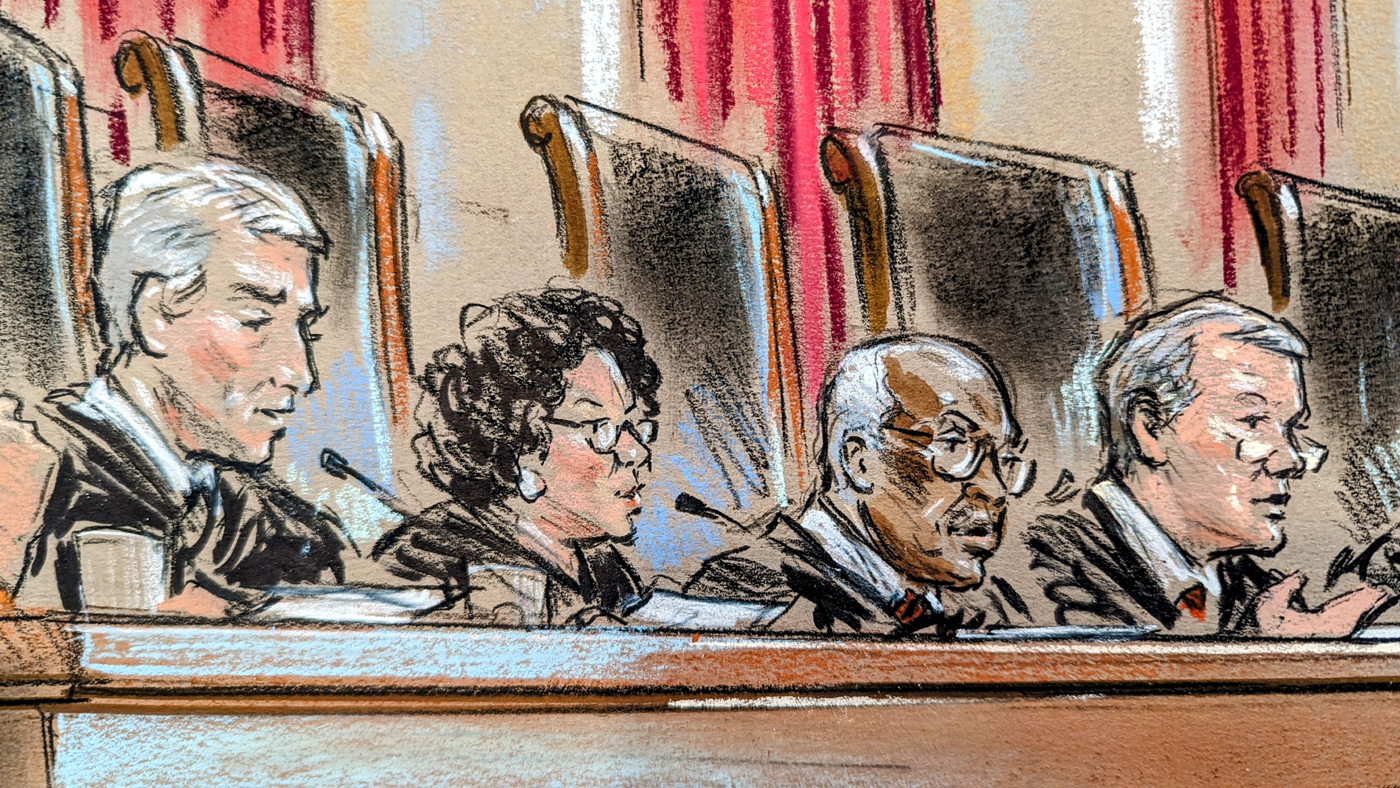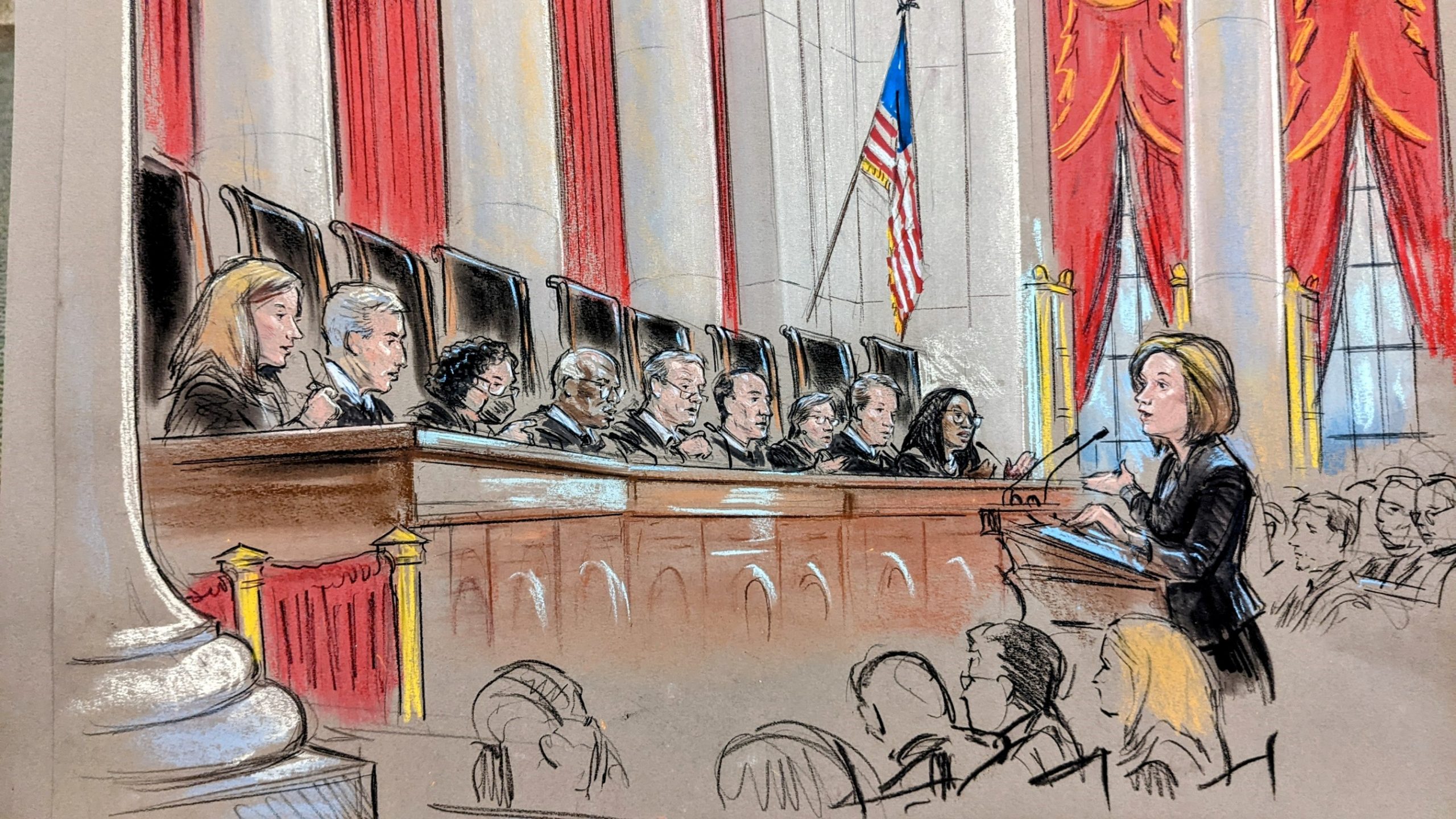Supreme Court rules invalid Amgen’s patent on cholesterol-lowering drug
OPINION ANALYSIS
on May 19, 2023
at 12:45 pm
Justice Neil Gorsuch delivers the opinion in Amgen Inc. v. Sanofi. (William Hennessy)
The Supreme Court on Thursday ruled against the drug company Amgen, which had sued Sanofi for infringing Amgen’s patent on antibodies that lower LDL cholesterol, sometimes called “bad” cholesterol. Amgen’s patent is invalid, the court found, because it fails to provide enough information to enable others to make and use the entire class of antibodies covered by the patent.
Justice Neil Gorsuch wrote for a unanimous court in Amgen Inc. v. Sanofi. Both Amgen and Sanofi make drugs based on monoclonal antibodies that lower LDL cholesterol by binding to a particular sweet spot on a particular protein and blocking that protein from binding to LDL receptors. Amgen and Sanofi each have a patent covering the particular antibody that each of them uses, described by specific amino acid sequences. This case does not involve those antibody-specific patents. Instead, it involves much broader patents Amgen obtained, which cover every antibody that binds to the same sweet spot and works the same way, a class that includes potentially millions of antibodies.
Amgen sued Sanofi for infringing these broader patents, which are known as “genus patents.” Sanofi insisted that Amgen’s patent was invalid because it failed to satisfy the enablement requirement of 35 U.S.C. §112(a), which requires a patent to describe the invention in sufficient detail “to enable any person skilled in the art … to make and use the” invention.
The Supreme Court agreed. “If a patent claims an entire class of processes, machines, manufactures, or compositions of matter,” Gorsuch wrote, “the patent’s specification must enable a person skilled in the art to make and use the entire class.”
Amgen failed this test. Amgen’s patents described 26 specific antibodies in detail, so a patent covering only those 26 examples would presumably pass the enablement requirement and be valid. But Amgen’s genus patents cover an entire universe of potential antibodies. For the rest of the antibodies, Amgen gave a “roadmap,” which essentially entails generating random antibodies and checking to see which ones work. Gorsuch called this “trial and error” or “a hunting license,” rather than enablement. The problem seemed to be that for a scientist to make all of the antibodies covered by Amgen’s patent, the scientist would also end up with millions of duds.
This does not mean, Gorsuch said, that a patent must explain “how to make and use every single embodiment within a claimed class.” A patent could give examples along with identifying specific characteristics that would allow someone else to make and use everything the patent claims. The ruling also doesn’t forbid some level of experimentation. But a patent may call for only a reasonable level of experimentation, which the court said “will depend on the nature of the invention.”
This ruling deals a blow to genus patents, which are particularly common in the pharmaceutical, chemical, and biotech fields. Although Gorsuch agreed with Amgen that genus patents do not have to satisfy a higher enablement standard, the reality is that it will be much more difficult to satisfy the enablement requirement for most genus patents than for other, narrower patents.
“The more one claims, the more one must enable.”






